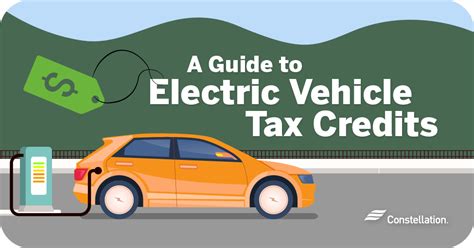Introduction
As the world grapples with climate change and environmental degradation, the push for clean energy solutions has never been more urgent. In the United States, Texas stands out as a key player in the electric vehicle (EV) movement. With its vast landscapes, robust economy, and commitment to innovation, Texas is positioning itself as a leader in clean energy adoption, particularly through attractive electric car rebate programs. This article explores how these rebates are driving the transition to cleaner energy sources and impacting Texas’s future.
The Rise of Electric Vehicles in Texas
The electric vehicle market has witnessed exponential growth over the past decade. In Texas, the allure of EVs is not only linked to environmental benefits but also financial incentives. With cities like Austin and Dallas embracing eco-friendly initiatives, the state is witnessing an increasing number of electric vehicles on its roads.
The Texas EV market has been bolstered by a combination of federal tax credits and state-specific rebates. These initiatives aim to reduce the initial purchase price of electric vehicles, making them more accessible to the average consumer. Moreover, as manufacturers ramp up production, the variety of available EV models has expanded dramatically, catering to diverse consumer preferences.
Texas Electric Car Rebate Programs
The Texas government has implemented several initiatives to promote electric vehicle adoption, including direct rebate programs and tax incentives. The most prominent among them are:
1. The Texas Emissions Reduction Plan (TERP)
Established to encourage the use of clean vehicles, TERP offers rebates to individuals and businesses that purchase electric or alternative fuel vehicles. This program plays a crucial role in decreasing air pollution levels throughout the state, particularly in metropolitan areas burdened by traffic.
2. Municipal Incentives
Various cities in Texas also provide their own rebate programs. For instance, Austin Energy has its EV Rebate Program, which offers significant rebates for home charging station installations, further alleviating the financial burden on EV owners.
3. Federal Tax Credits
In addition to state and local incentives, federal tax credits can significantly reduce the cost of purchasing an electric vehicle. This program is applicable across the United States, but when combined with Texas-specific rebates, the potential savings make EVs an attractive option for many consumers.
Environmental Impact
The transition towards electric vehicles is not merely a trend; it represents an essential shift in how Texas approaches energy consumption. Electric cars produce zero tailpipe emissions, which plays a crucial role in improving air quality and reducing greenhouse gas emissions. Moreover, with Texas being a leader in renewable energy generation, particularly wind and solar, the environmental benefits of EVs are amplified when these vehicles are charged from clean energy sources.
The reduction in fossil fuel dependency leads to a considerable decrease in carbon dioxide (CO2) emissions, allowing Texas to align itself with national and global climate goals. Furthermore, as more Texans adopt electric vehicles, the demand for clean energy will increase, driving investments in renewable sources, thus creating a positive feedback loop.
Economic Benefits
Beyond environmental gains, electric car rebates in Texas have profound economic implications. The growth of the EV market has opened new avenues for employment, particularly in manufacturing, sales, and infrastructure development, such as charging stations. Investments in EV technology and related infrastructure can lead to job creation and retention, fortifying the state’s economy.
Moreover, as the adoption of electric vehicles rises, there can be a lower demand for oil, which could lead to reduced gas prices. The shift towards renewable energy also provides an opportunity for Texas to capitalize on its resources, creating a competitive advantage in the clean energy sector.
Challenges and Considerations
While Texas is making significant strides towards electric vehicle adoption, challenges persist. Infrastructure is one of the most pressing issues, as the availability of charging stations remains limited in certain areas. Expanding charging infrastructure is essential to support the growing number of EVs on the road.
Additionally, there is a need for public awareness campaigns to educate consumers about the benefits of electric vehicles and the available rebates. Misconceptions about EVs’ efficiency, range anxiety, and purchase costs can hinder adoption rates. Addressing these challenges through strategic initiatives is vital for the continued success of electric vehicle programs.
Conclusion
In summary, Texas electric car rebates are playing a crucial role in promoting the adoption of clean energy solutions and electric vehicles. As the state embraces the transition towards sustainable transportation, it paves the way for a greener, more efficient future. By investing in incentives, improving infrastructure, and fostering public awareness, Texas can lead the nation in electric vehicle adoption and contribute to global efforts in combating climate change. The future is electric, and Texas is harnessing that power.
Frequently Asked Questions (FAQs)
1. What is the Texas Emissions Reduction Plan?
The Texas Emissions Reduction Plan (TERP) is a program designed to reduce air pollution by providing financial incentives for purchasing electric and alternative fuel vehicles.
2. Are there electric vehicle rebates for businesses in Texas?
Yes, Texas offers various rebate programs for businesses to encourage the adoption of electric vehicles, including incentives for fleet purchases and charging infrastructure installations.
3. How do federal tax credits work for electric vehicles?
Federal tax credits allow consumers to receive a credit on their federal taxes when purchasing an electric vehicle, significantly offsetting the initial cost. The amount varies based on the vehicle’s battery capacity.
4. What are the environmental benefits of electric vehicles?
Electric vehicles produce zero tailpipe emissions, reducing air pollutants and greenhouse gas emissions, contributing to improved air quality and climate change mitigation.
5. What challenges do electric vehicles face in Texas?
Challenges include limited charging infrastructure, public misconceptions about EVs, and the need for broader public awareness initiatives to promote electric vehicle adoption.
Download Texas Electric Car Rebate
